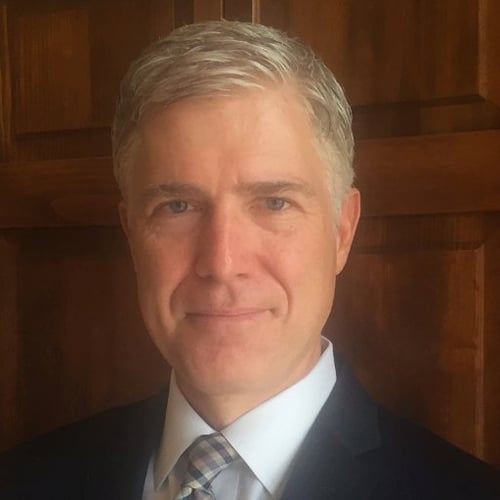ABA rates Supreme Court nominee Neil Gorsuch ‘well qualified’

Judge Neil Gorsuch.
The American Bar Association has rated Neil Gorsuch, President Donald Trump’s nominee for the U.S. Supreme Court, “well qualified.”
The rating (PDF) came Thursday from the ABA’s Standing Committee on the Federal Judiciary, whose purpose is to evaluate the qualifications of nominees to federal judgeships. The committee’s goal is to provide impartial, nonpartisan evaluations based on judicial temperament, competence and integrity, according to its own “backgrounder” document (PDF).
An ABA press release says the review was based on hundreds of interviews with people who know Gorsuch’s work and qualifications. Teams of law professors and Supreme Court advocates reviewed the judge’s writings—he currently sits on the Denver-based 10th U.S. Circuit Court of Appeals—for clarity, quality, analytical prowess and knowledge of the law.
The “well qualified” rating—the highest the Standing Committee gives—was reported to the White House, the Department of Justice, the Senate Judiciary Committee and the nominee himself. The Standing Committee will also submit a written statement explaining its rating to the Senate Judiciary Committee. That statement will become part of the public record during Senate confirmation hearings for Gorsuch, scheduled to begin March 20.
“The ABA’s independent Standing Committee on the Federal Judiciary has evaluated the professional qualifications of nominees to the Supreme Court for more than 60 years,” said ABA President Linda A. Klein in the press release. “The ABA remains uniquely qualified to review the professional qualifications of nominees and hopes to assist the Senate [to] make as informed a decision as possible about these critically important appointments.”
The Standing Committee consulted with the President of the United States on every judicial nominee from 1953 to 2000, and then again starting in 2009. President George W. Bush ended the ABA’s role in evaluating lower-court nominees in 2001, saying he would rather not give the ABA preference over other organizations. The Standing Committee still rated those nominees after their names were publicly announced.



